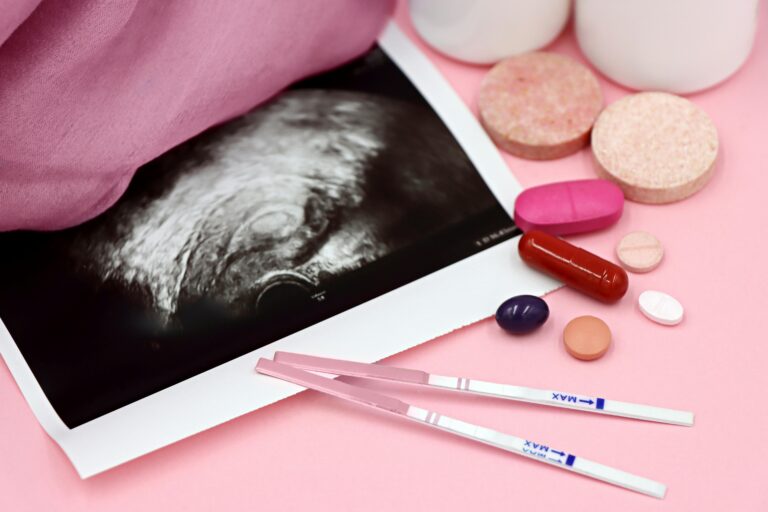Perinatal Depression in the Digital Age: From Social Media to Mental Wellness
Parenthood: Expectation vs. Reality
Parenthood is wild. It’s magical, exhausting, joyful, overwhelming, and everything in between.
Many parents imagine slow mornings cuddling their baby, capturing picture-perfect Instagram moments, and basking in peaceful bonding time. But for most, the reality is more chaotic: sleepless nights, a baby who cries nonstop, piles of diapers, and a mind constantly asking Am I doing this right?
That inner voice: Am I enough?” can feel relentless. For some, these feelings evolve into perinatal depression, a condition that affects mood, motivation, and the ability to bond with your baby.
This is not weakness, failure, or a character flaw. Perinatal depression is common, real, and treatable, and it can occur during pregnancy (prenatal) or after birth (postpartum).
The Good News in 2025
The stigma around perinatal depression is fading, and support has never been easier to access. Parents now have multiple ways to find help that fits their lives:
- In-person therapy & psychiatry: face-to-face support with trained professionals
- Telehealth & hybrid models: care that fits around feeds, naps, and work schedules
- Mood-tracking apps & digital tools: track your emotions, practice mindfulness, and access therapeutic exercises anytime
- Online communities & peer networks: share experiences, gain practical advice, and receive emotional support from parents who get it
Whether it’s 2 a.m. on your couch or noon in your OB/GYN’s office, help is available. You’re not failing, you’re human. Parenting is messy, and that’s perfectly okay.
Social Media ≠ Real Life
Scrolling through feeds of “perfect” parents can leave anyone feeling inadequate:
- Everyone else has it all figured out
- You’re failing if your house is messy or your baby cries
- You should “bounce back” instantly after birth
The truth? Social media is curated. It’s a highlight reel, not reality.
Exhaustion, tears at 2 a.m., messy hair buns, cracked nipples—these moments don’t trend. They’re real, normal, and human.
Your authentic, imperfect parenting is the real flex. Showing up, even on tough days, matters more than any post ever could.
How Social Media Fuels Perinatal Depression
Hormones + Dopamine Loops
After birth, estrogen and progesterone plummet, impacting serotonin and dopamine, which are your brain’s mood and motivation messengers. Social media likes, comments, and “perfect parent” posts can spike dopamine further, creating highs and lows that amplify feelings of inadequacy.
Brain Changes = Emotional Amplification
New parents experience heightened prefrontal cortex and amygdala activity, which govern decision-making and emotion. Curated posts can intensify guilt, sadness, or anxiety, even when everything is actually fine.
Perfectionism + Self-Criticism
Parents with high standards are particularly vulnerable. Social media often mirrors comparison: Why isn’t my baby sleeping like theirs? Why don’t I look like that already? Spoiler: no one is bouncing back as quickly as the feed suggests.
Social Stress + Isolation
Sleep deprivation, financial stress, and lack of hands-on support take a toll. Adding social media, where everyone else seems to have a village, can heighten feelings of isolation and inadequacy.
Takeaway: Social media is a double-edged sword. It can educate, inspire, and connect, but it can also fuel guilt, anxiety, and depressive patterns. Protecting your digital space is as important as caring for your physical space.
What Is Perinatal Depression?
Perinatal depression isn’t just the “baby blues.” It can appear during pregnancy (prenatal) or after birth (postpartum).
Common symptoms include:
- Persistent sadness, tearfulness, or irritability
- Emotional numbness or feeling disconnected
- Difficulty bonding with your baby
- Intrusive or frightening thoughts
- Sleep disturbances beyond typical newborn patterns
Experiencing these symptoms does not make you a bad parent—it makes you human. You’re allowed to struggle. You’re allowed to heal.
Why Perinatal Depression Matters
Perinatal depression can:
- Affect your emotional and physical well-being
- Influence early bonding and attachment with your baby
- Strain relationships with partners, family, and friends
The good news? Recovery is possible—and with the right treatment, highly probable. You can experience joy again, connect deeply with your baby, and thrive as a parent without the burden of untreated depression.
Healing Pathways
Psychotherapy: Brain + Mind + Heart
Evidence-based therapy is a gold standard for recovery:
- Cognitive Behavioral Therapy (CBT): Reframes negative thought patterns, improves emotional regulation, and reduces anxiety
- Interpersonal Therapy (IPT): Strengthens relationships and social supports, easing feelings of isolation
Therapy also helps you:
- Resist unrealistic social media comparisons
- Strengthen parent-infant bonding
- Build coping strategies (mindfulness, better sleep, stress management)
- Improve communication with loved ones
Therapy isn’t about “fixing you.” It’s about giving you the tools to feel like yourself again.
Digital Tools & Communities
- Teletherapy & Telepsychiatry: Flexible, effective, and now mainstream
- Mental Health Apps: Track mood, practice CBT, journal, or meditate anytime
- Online Support Groups: Communities for NICU parents, BIPOC parents, LGBTQ+ families, and more
Finding your tribe online or in person can reduce isolation, normalize your experiences, and build resilience.
Medications That Work
For moderate-to-severe cases, medication can be life-changing under a trust and well-trained psychiatric specialist in Women’s Mental Health and Reproductive Psychiatry:
- Antidepressants: Safe, widely used, effective
- Zuranolone (Zurzuvae®): 14-day oral course with rapid relief for many
- Brexanolone (Zulresso®): 60-hour IV infusion for severe postpartum depression. The manufacturer, Sage Therapeutics, requested that the FDA withdraw its approval, and it was no longer being marketed as of January 1, 2025.
The best outcomes often combine therapy, medication, and digital tools under the supervision of a psychiatric clinician who specializes in this subspecialty field in psychiatry. Healing is rarely one-size-fits-all—it’s about finding your formula.
Holistic & Lifestyle Support
Recovery is whole-person:
- Sleep strategies: Tag-team nights with partner, family, or night doula
- Nutrition: Fuel your mind and body
- Movement: Gentle yoga, walks, stretching
- Mind-body practices: Meditation, breathing, mindfulness
- Support networks: Online or in-person
- Environment: Reduce social media triggers, build calm routines
Small steps add up. Healing is about progress, not perfection.
When to Get Immediate Help
Seek urgent help if you experience:
- Thoughts of harming yourself or your baby
- Hallucinations, paranoia, or mania
- Several nights without sleep
- Feeling detached from reality
Call 988, dial 911, or go to the nearest emergency department. You are not alone.
The Future of Perinatal Mental Health
We’re entering a new era:
- Depression screening is standard during pregnancy and postpartum
- Early interventions, such as therapy, medication, digital tools, are accessible
- Open, stigma-free conversations about mental health are growing
Younger generations are normalizing therapy, sharing their stories, and reshaping how families view care. At YOU Psychiatry Clinic, we embrace this courage with evidence-based, stigma-free guidance across all platforms.
Healing Highlights
- Perinatal depression is common, real, and not your fault
- Social media ≠ reality
- Recovery can start anywhere: your phone, your couch, your OB’s office
- You are strong, brave, and enough
Resources & Support
Talk to a Professional: OB-GYN, midwife, primary care clinician, pediatrician, therapist, or allied health professional
Virtual Support & Peer Mentorship:
- Postpartum Support International (PSI): https://postpartum.net/
- Massachusetts General Hospital Women’s Mental Health: https://womensmentalhealth.org/
- Specialized Care: YOU Psychiatry Clinic—expert care in Women’s Mental Health & Reproductive Psychiatry
Meet Our Specialist
Dr. Nguyen My Phon, M.D.
Fellowship-trained at the University of Illinois at Chicago, home to the largest reproductive psychiatry program in the U.S. Provides personalized evaluation and treatment for perinatal and reproductive mental health
Schedule a consultation: [Book Now]
Dr. Nguyen also collaborates with allied clinicians seeking second opinions or shared care.
Your story matters. Your healing is possible. And you don’t have to do this alone.







